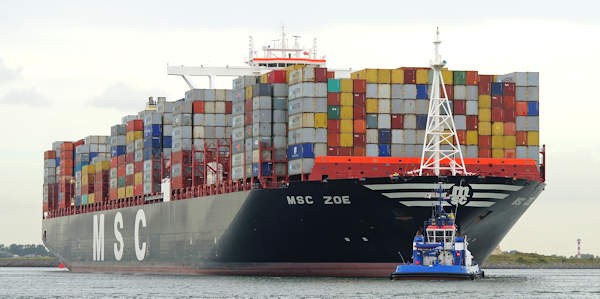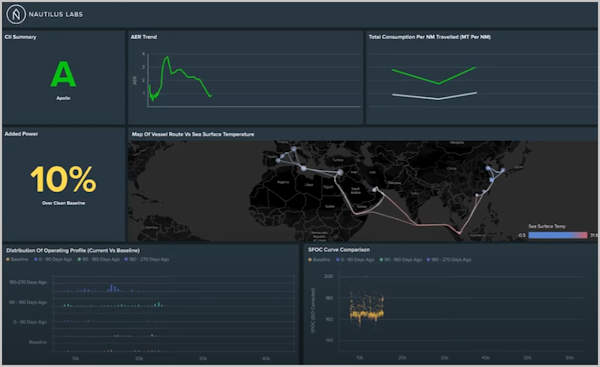Historical Challenges of Fuel Efficiency in the Maritime Industry

The maritime industry is a cornerstone of global trade, with ships transporting approximately 90% of world trade. However, this immense scale of operations also brings forth challenges, particularly in fuel consumption and the resulting carbon emissions. Historically, ships were designed with a primary focus on capacity, durability, and long-term operation. Fuel efficiency, while acknowledged, was often secondary to these objectives. This perspective was further reinforced by the relatively low fuel costs for a significant part of the 20th century.
* Please send feedback/suggestions to editor @ shipuniverse.com
However, as global trade expanded and more vessels took to the seas, the sheer volume of fuel consumed by the shipping industry began to be more noticeable. Several intertwined challenges emerged:
- Economic Impact: As oil prices began to fluctuate, especially during the oil crises of the 1970s and later spikes in the 2000s, ship operators faced increasing operational costs directly tied to fuel consumption. For an industry operating on thin margins, these fluctuations could significantly impact profitability.
- Environmental Concerns: Ships traditionally used “bunker fuel”, a residue from the oil refining process, known to be high in sulfur and other pollutants. The emissions from burning this fuel contribute to air pollution, acid rain, and harmful particulate matter. Over time, the cumulative impact of these emissions on the environment became undeniable.
- Operational Efficiency: Inefficient fuel consumption often indicated that a vessel wasn’t operating at its optimal capacity. This could be due to factors like hull fouling, suboptimal navigation routes, or outdated engines, which not only consumed more fuel but also reduced the lifespan of the ship.
The Industry’s Pivot Towards Solutions like Nautilus Labs
As the 21st century dawned, a confluence of rising fuel prices and stringent environmental regulations pushed the maritime industry towards a more fuel-efficient future. The International Maritime Organization (IMO), among other regulatory bodies, set out tighter emission standards, compelling ship operators to rethink their fuel strategies.
This changing landscape created a fertile ground for solutions that could address these challenges. Nautilus Labs, with its data-driven approach, emerged as one such solution. Leveraging technology and analytics, the platform promised ship operators insights into their vessel’s performance, allowing them to make informed decisions that not only reduced fuel consumption but also minimized environmental impact.
1. Introduction to Nautilus Labs
Established with a vision to transform maritime operations, Nautilus Labs leverages advanced data analytics and machine learning to provide actionable insights into vessel performance.
2. The Fuel Inefficiency Dilemma
Fuel costs form a significant portion of a ship’s operational expenses. Yet, inefficiencies stemming from varied factors such as sub-optimal routing, machinery health, and operational practices can lead to increased fuel consumption. Such inefficiencies not only elevate operational costs but also magnify the environmental footprint of ships.
3. Harnessing Data for Fuel Efficiency
Nautilus Labs collects diverse sets of real-time data from vessels, including:
- Engine parameters
- Weather conditions
- Hull and propeller performance
- Vessel positioning and speed
By aggregating these data sets, the platform offers a comprehensive view of the ship’s performance and operational patterns.
4. Machine Learning and Predictive Analytics
Beyond mere data collection, Nautilus Labs uses advanced machine learning algorithms to analyze patterns, predict vessel performance, and recommend actionable insights. These algorithms can:
- Identify deviations from optimal operational parameters
- Forecast vessel performance under varying conditions
- Offer recommendations to achieve maximum fuel efficiency, such as optimal cruising speed or routing adjustments
5. Real-time Insights and Proactive Measures
With real-time monitoring, Nautilus Labs enables ship operators and owners to make informed decisions proactively. By detecting fuel inefficiencies as they occur, operators can make immediate corrections, whether it’s adjusting the vessel’s speed or altering its course to avoid adverse weather conditions.

6. A Shift towards Sustainability
By addressing fuel inefficiencies, Nautilus Labs isn’t just advocating for cost savings but also for a significant reduction in greenhouse gas emissions. With the maritime industry under scrutiny for its environmental impact, solutions that promote both operational efficiency and sustainability become invaluable.
In a world grappling with environmental concerns and a maritime industry facing both operational and sustainability challenges, Nautilus Labs offers a beacon of hope. By seamlessly blending technology with maritime operations, the company highlights and rectifies fuel inefficiencies, paving the way for a greener and more efficient shipping future.

Do you have a Maritime Product or Service that may be of interest to Shipowners? Tell us about it here!
Do you have feedback or insights? Please reach out to editor @ shipuniverse.com



